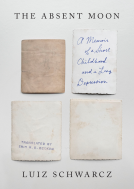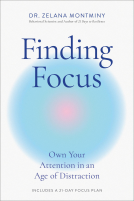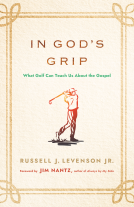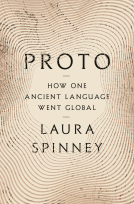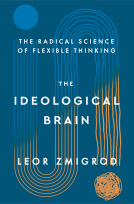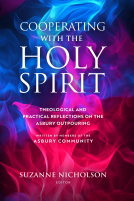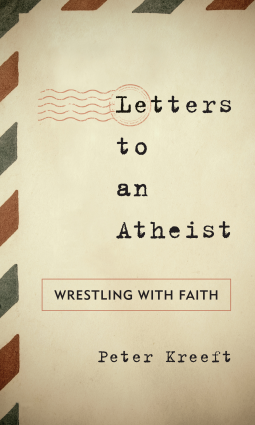
Letters to an ATHEIST
Wrestling with Faith
by Peter Kreeft
This title was previously available on NetGalley and is now archived.
Send NetGalley books directly to your Kindle or Kindle app
1
To read on a Kindle or Kindle app, please add kindle@netgalley.com as an approved email address to receive files in your Amazon account. Click here for step-by-step instructions.
2
Also find your Kindle email address within your Amazon account, and enter it here.
Pub Date Sep 16 2014 | Archive Date Oct 19 2014
Description
In Letters to an Atheist esteemed
philosopher and author Peter Kreeft corresponds with a young atheist
who is wrestling with the question of God. Together they work through
some of the primary reasons people don’t believe in God, including
violence committed in the name of religion, the problem of evil, and
more. They also discuss many of the reasons for belief, including love,
miracles, and the relationship between religion and science.
The
debate between atheists and theists today is often strident and angry,
and understandably so—the debate encompasses fundamental questions about
how we live our lives. As Kreeft writes, “if God does not exist, then
religion is the biggest hoax, the biggest myth, the biggest lie in the
history of the world.” However, Letters to an Atheist
showcases a respectful exploration of some of life’s biggest questions,
trying to understand the opposing point of view. With characteristic
warmth and clarity, Kreeft’s letters offer believers and non-believers
alike much to consider.
A Note From the Publisher
You are viewing unedited page proofs. Quote only from finished book. Contact publicity@rowman.com for more info.
Advance Praise
Kreeft's
latest book is profound yet chatty, brilliant yet warm and humorous. It
is studded with new perspectives. A great gift for atheists but also
for sceptics and doubters.
— Ronda Chervin, former atheist; Holy Apostles College and Seminary
Letters
of Christian thinkers to young atheists have become almost a literary
genre. Usually, they are occasioned by some atheist’s claim or a
student’s suspicion that no case can be made either for philosophy or
faith. Probably no one has dealt with young (or old) atheists more
clearly or more persuasively, yet carefully and modestly, than Peter
Kreeft. He knows what the evidence is and its limits. He understands
what arguing consistently means. The fact is, very few have really come
across a presentation of reason and faith in the manner that Kreeft
argues it in these charming and considerate letters. I found them most
delightful and persuasive, even for an old cleric who thinks faith makes
sense. For anyone honestly looking to see what arguments for atheism
are and how they might be resolved, no better book can be found.
— James V. Schall, S. J., professor emeritus, Georgetown University
Kreeft’s
compassionate and passionate arguments for the existence of God are
peppered with pointed insights, flashes of light that turn the tables
with a turn of phrase. Sharp. Witty. Wise. Clear. Eye-opening.
Compelling. A joy to read. I often found a smile on my face from the
simple delight of truth-seeking.
— Christopher West, author of Fill These Hearts: God, Sex, and the Universal Longing
Letters to an Atheist speaks
the vernacular of the too-smart-for-the-room atheist who’s never been
invited to encounter the hard diamond of Truth himself. As ever, Peter
Kreeft models the very best of Christian apologetics: he wants to win
the atheist not the argument. Believers will learn a ton from this book;
atheists, even more.
— Patrick Coffin, author and host of Catholic Answers Live
More
than a decade ago, as I was working on another work of Catholic
apologetics, a friend remarked that while my efforts in regard to
Fundamentalist Christians was useful, a new apologetics was needed, not
dealing with classical "in-house" Christian theological differences but
to advance a conversation with atheists and agnostics, whose influence
(if not numbers) was on the rise. That an erudite philosopher like Peter
Kreeft should respond to that challenge with gusto and competence is
most encouraging. Indeed, philosophy (the use of unaided human reason
with no recourse to theological categories) is the ideal ground on which
to engage a dialogue with non-theists. Professor Kreeft here brings all
his usual talents of precision, readability, and affability to the
fore, as we have come to expect. We are all in his debt for this most
needed and most welcome contribution.
— Rev. Peter M. J. Stravinskas, editor of The Catholic Response
Peter Kreeft's Letters to an Atheist
may well convince the open minded non-believer of the reasonableness of
belief in God. Kreeft's style is both engaging and accessible. Letters to an Atheist is engaging because the literary form of letter draws in the reader. Who doesn't like to receive thoughtful letters? Letters to an Atheist
is accessible because Kreeft makes philosophy not merely an abstract
head game but a matter of real engagement with living issues. Kreeft
draws on insights from a wide range of important figures in the history
of philosophy, on both sides of the theistic question, including Thomas
Aquinas and Bertrand Russell, Pascal and Nietzsche. Kreeft covers all
the major reasons for rejecting as well as for accepting God's
existence. If you or someone who love has doubts, questions, and
difficulties with God's existence, this is the book to get.
— Christopher Kaczor, Loyola Marymount University
Peter
Kreeft reminds me of C. S. Lewis. He has an astonishing ability to
communicate complex and complicated philosophical concepts simply and
succinctly. These letters to a young atheist will convince all but the
most proud and prejudiced that faith is rational and that reason leads
to faith.
— Joseph Pearce, Thomas More College; author of Beauteous Truth: Faith, Reason, Literature and Culture
Peter Kreeft’s Letters to an Atheist
is a perfect example of John Paul II’s insistence that the Church
proposes rather than imposes. This gem of a book is brim full of divine
signposts and suggestions which we find all around us and within. The
many distinctions and proofs are clear and powerful, presented always in
a most delicate and sensitive appreciation for the inviolability of
conscience. The book ends where every good book on the Faith must—with
an invitation, an invitation to Michael the young atheist (and to the
reader) to follow his 'own pointing fingers.' There can be no faith
without a further question, for creation and salvation are deep
mysteries. And a question, of course, means a quest. A most delightful
read!
— Montague Brown, Saint Anselm College
There
are lots of books about atheism. This one is different. Kreeft knows
that logical arguments do not exist in a vacuum, because reasoning takes
place among living minds. His book invites a real human dialogue
between writer and reader, as friends and partners in seeking the truth.
Just one caveat: You must really want to find it.
— J. Budziszewski, University of Texas at Austin, author of On the Meaning of Sex
My
friend Peter Kreeft has done it again. Especially for those who have
enjoyed his dialogues, these fictional but quite realistic letters were
written to discuss briefly a wide range of issues, chiefly those
involved at the crossroads of atheism, theism, and Christianity. Vintage
Kreeft from the outset, the reader is invited to follow from Aristotle
to Buddha to Chesterton to Da Vinci and on to Freud, Flew, Hinduism,
Lewis, and Jimmy Stewart. What a trip, all moving quickly but
thoughtfully. You don’t enjoy philosophy? It’s helpful but not strictly
required here. You sometimes disagree with the conclusions in these
sorts of discussions? That’s fine—you may join the conversation, too,
for we are all free to think for ourselves. But this is a delightful
trip, one that may well serve as its own conversation-starter.
— Gary R. Habermas, Distinguished Research Professor and Chair of Philosophy, Liberty University and Theological Seminary
I’ve
known Peter Kreeft for almost fifty years. And apart from a deepening
of wisdom, he is now as he was when I first met him: supremely clever at
dialectical argument, single-minded in the pursuit of truth, disarming
in the sincerity of his simple and joyful love of Christ. All of these
virtues are on full display in Letters to a Young Atheist, making it a
uniquely powerful tool for evangelization. Of the many books out there
taking aim against the so-called New Atheism, this is surely one of the
very best.
— Ronald K. Tacelli, S.J., Boston College
Marketing Plan
National print and online campaign
National print and online campaign
Available Editions
| EDITION | Ebook |
| ISBN | 9781442232716 |
| PRICE | $19.95 (USD) |
Average rating from 10 members
Featured Reviews
 Paul M, Reviewer
Paul M, Reviewer
When Peter Kreeft met "Martha" at a conference, she asked for his assistance and advice in talking with her atheist brother "Michael." So Kreeft begins a fictional correspondence with Michael, a friendly debate attempting to win Michael over to theism and Christian faith. In Letters to an Atheist: Wrestling with Faith, Kreeft presents arguments for the existence of God and debunks atheists' arguments against theism with kindness, clarity, and respect.
Kreeft, a Boston College philosophy professor, has written dozens of books that bring theological and philosophical ideas into everyday language. Letters is no exception. He covers many of the classical arguments (design, natural law, the anthropic principal, etc.) and atheist objections (hell, the problem of evil) in a conversational, accessible way. Kreeft discusses many of the standard arguments for the existence of God, but mostly resists categorization or listing of said arguments, because he doesn't want to "turn our letters into a philosophy class. Nothing wrong with a philosophy class in philosophy class, but letters should be letters."
That said, while making the book highly readable, personal, and enjoyable, the fact is there is a lot of philosophy herein. It would have been nice to have an appendix with a systematic listing of the arguments he makes, and a list of suggested reading for further study. The dialogue approach is great for introducing ideas, but if I wanted to come back to Letters as a reference, I would be hard pressed to wade through it for the main points. (I realize Kreeft didn't write this to be a reference. But I would still like to have seen a distillation of the core arguments.)
Kreeft's writing is engaging and entertaining. I suspect his classes at Boston College are popular and packed. But I also suspect that atheists reading Letters to an Atheist will have a similar response to Michael's: "I think I understand all the arguments we have exchanged, on both sides, quite clearly, and I am not convinced by your arguments, though you express them very well."
Thanks to NetGalley and the publisher for the complimentary electronic review copy!
Readers who liked this book also liked:
Rev. Dr. Suzanne Nicholson
Christian, Nonfiction (Adult), Religion & Spirituality
